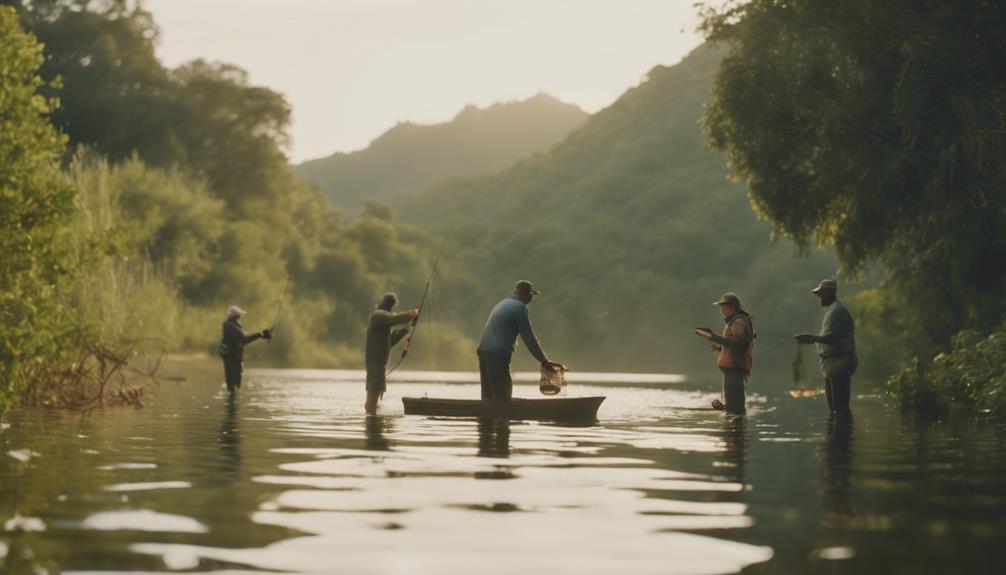Fishing is more than just a hobby; it’s a cherished pastime for many individuals seeking relaxation and connection with nature. However, before casting your line, it’s crucial to understand the regulations that govern this activity, particularly when it comes to fishing licenses. One of the most common questions anglers have is, “When does a fishing license expire?” In this comprehensive guide, we will explore the different types of fishing licenses, their expiration dates, and what you need to do to ensure you’re fishing legally.
Understanding Fishing Licenses
Fishing licenses are permits issued by state or provincial authorities that allow individuals to fish in specific bodies of water. These licenses are essential for regulating fish populations and ensuring sustainable practices. The requirements for obtaining a fishing license vary by location, which means anglers must be aware of local laws and guidelines. In addition to the license, some areas may require additional permits for specific types of fishing, such as saltwater or freshwater fishing.
Types of Fishing Licenses
When discussing when a fishing license expires, it’s essential to first understand the different types of fishing licenses available. Most jurisdictions offer various types of licenses, including resident, non-resident, and temporary licenses. Resident licenses are typically cheaper and designed for individuals who live in the state. Non-resident licenses are for visitors and often come at a higher price. Temporary licenses may be available for tourists or individuals who plan to fish for only a short period.
Each type of license has its specific rules concerning expiration dates. For example, a resident fishing license may last for an entire calendar year, while a temporary license might only be valid for a few days. Understanding these distinctions is vital for ensuring compliance with local fishing regulations.
Common Expiration Dates for Fishing Licenses
So, when does a fishing license expire? The expiration date largely depends on the type of license you hold and the regulations set by your state or province. In many areas, fishing licenses are valid for a full year from the date of purchase. For example, if you buy your license on June 15, it will typically expire on June 15 of the following year.
However, some jurisdictions have different expiration rules. For instance, certain states may issue fishing licenses that are valid only for the calendar year, meaning they expire on December 31, regardless of when they were purchased. Others may offer multi-year licenses, which can be valid for two or three years. It’s crucial to check with your local wildlife agency to determine the expiration policy specific to your license type.
Renewing Your Fishing License
Once you know when your fishing license expires, it’s important to stay ahead of the game and plan for renewal. Many states offer online renewal options, which provide a convenient way to update your license without having to visit a physical location. Renewal periods can vary; some jurisdictions allow you to renew your license up to 30 days before its expiration date, while others may require you to wait until it has expired.
To ensure a seamless renewal process, keep track of your license’s expiration date and set reminders. If you fail to renew your fishing license, you may face fines or legal issues, which can quickly put a damper on your fishing experience.
Special Considerations for Fishing Licenses
In addition to the standard expiration rules, there are special considerations for certain groups of anglers. For example, many states offer discounted or free fishing licenses for seniors, disabled individuals, and veterans. These licenses may have different expiration terms compared to regular licenses, so it’s essential to read the fine print.
Additionally, some states have specific days designated as “free fishing days,” during which no fishing license is required. Knowing about these days can allow you to enjoy fishing without the need for a license, but be sure to check local regulations to ensure you’re compliant.
Consequences of Fishing Without a Valid License
Fishing without a valid license is not just a minor oversight; it can have significant consequences. Each state has its own set of penalties for fishing without a license, which can include hefty fines, confiscation of fishing equipment, and even criminal charges in severe cases. Moreover, being caught without a valid license can result in a tarnished reputation among fellow anglers and local authorities.
To avoid these consequences, always ensure that your fishing license is current and valid before heading out. Regularly check the expiration dates and keep a copy of your license with you while fishing.
Tips for Staying Informed About Fishing Regulations
Given the varying regulations surrounding fishing licenses, staying informed is crucial. The best way to do this is to regularly visit your local wildlife agency’s website. These websites typically provide up-to-date information on fishing regulations, including license types, expiration dates, and renewal processes.
Additionally, consider joining local fishing clubs or forums. These communities often share valuable information about fishing regulations and can help newcomers understand the ins and outs of fishing in their area. Social media platforms can also serve as excellent resources for staying informed about changes to fishing laws.
Conclusion: Be Prepared and Fish Legally
Understanding when a fishing license expires is critical for anyone who enjoys the sport. By familiarizing yourself with the types of fishing licenses available, their expiration dates, and the necessary renewal processes, you can ensure a hassle-free fishing experience. Always remember to check local regulations, stay informed, and renew your license in a timely manner. With proper preparation, you can enjoy countless days on the water, casting your line without worry. Happy fishing!
